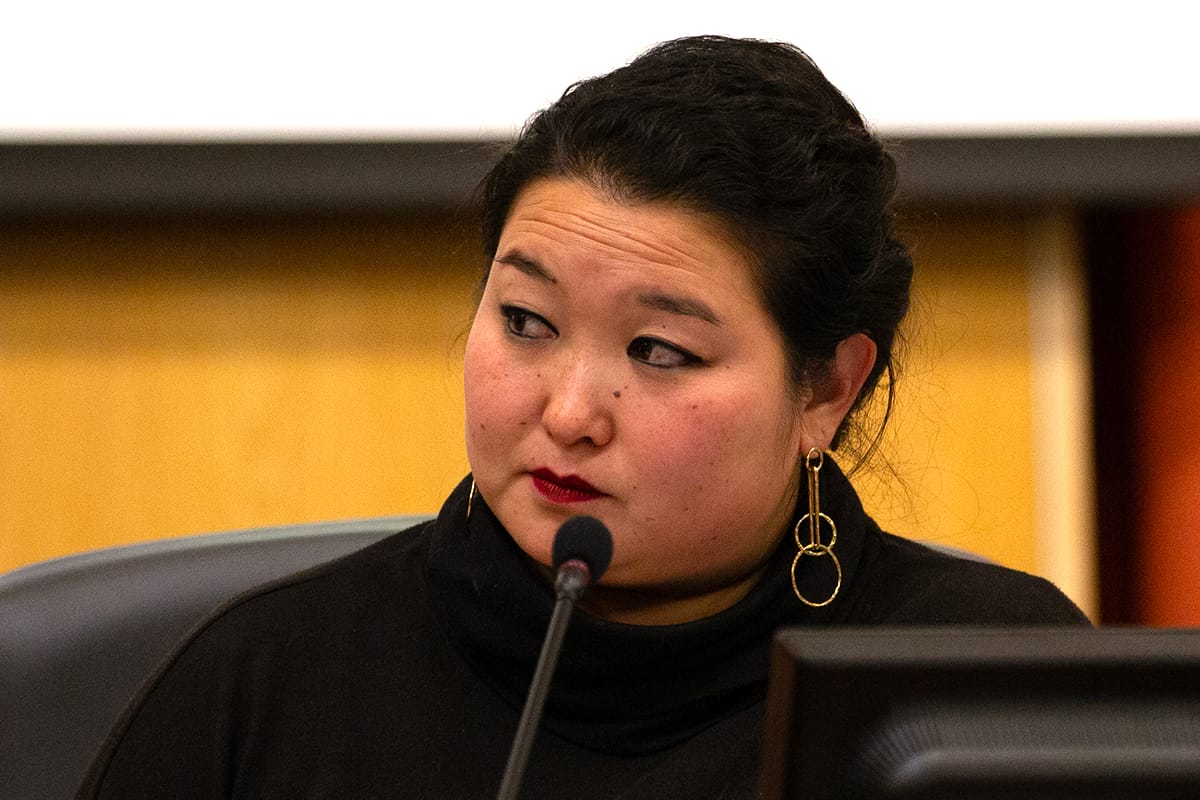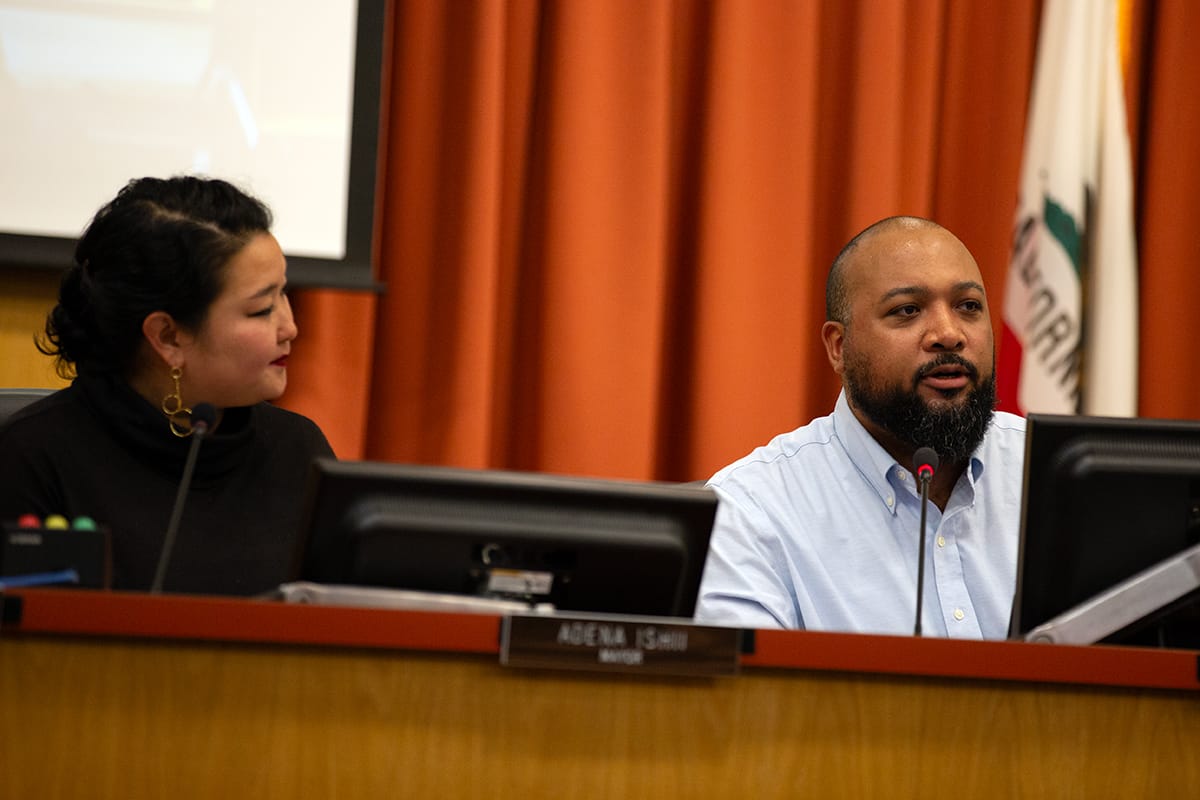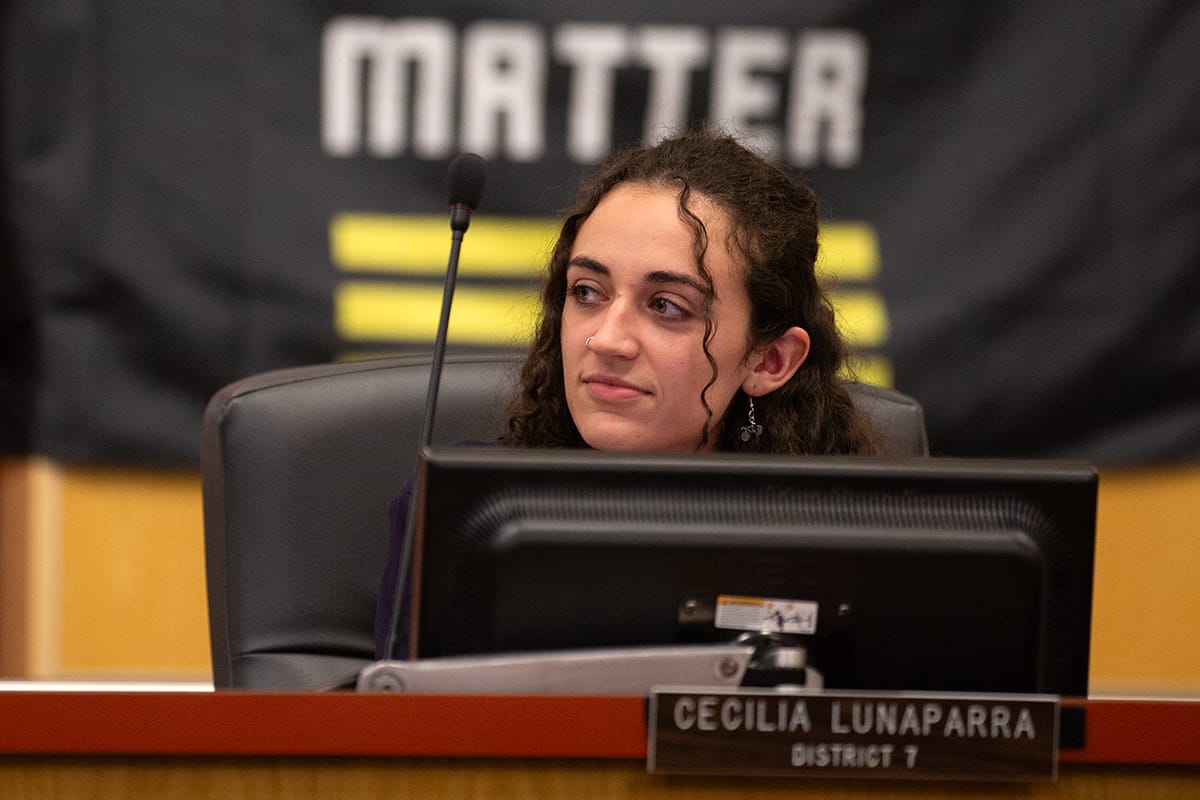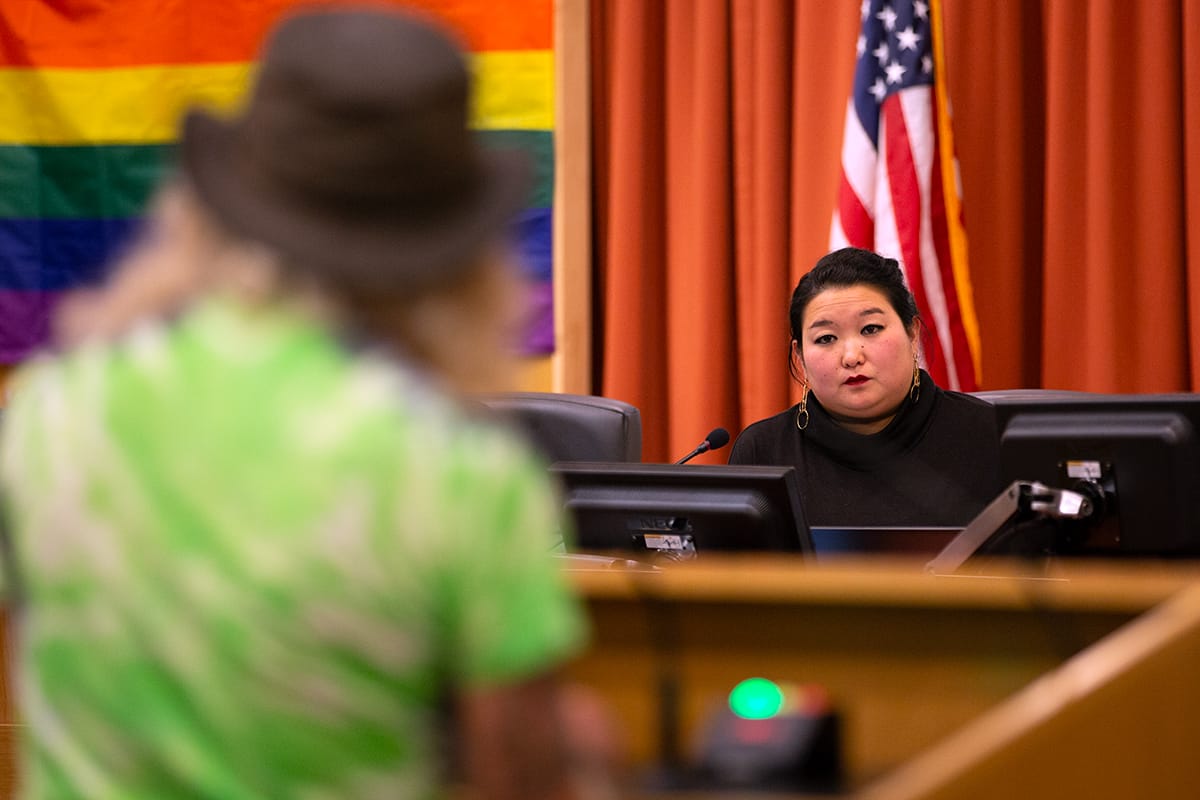Dissent on the dais as motion from new Berkeley mayor fails
Cecilia Lunaparra criticized some of her colleagues for using the "Trumpist tactic of silencing dissent." Terry Taplin pushed back hard.

A proposal from Berkeley's new mayor went down in defeat in recent weeks, revealing a fractured City Council getting off to a rocky start to the legislative season.
It was only the second council meeting for Berkeley Mayor Adena Ishii, who narrowly beat District 5 incumbent Sophie Hahn in a tight race in November that came down to a ranked-choice contest.
The November election resulted in major changes to the Berkeley City Council, with former Mayor Jesse Arreguín becoming a state senator and longtime Councilwoman Susan Wengraf retiring.
That put three new faces on the dais: Ishii in the mayor's seat, Brent Blackaby winning Wengraf's seat and Shoshana O’Keefe taking the seat vacated by Hahn.
The Ishii proposal was routine, with her appointments to different council committees focused on topical work, as well as her choice for her first vice mayor.
The somewhat wonky item was originally on the consent calendar — meaning it was set to have been adopted en masse by a single City Council vote along with nearly two dozen other largely non-controversial items.
But elected officials can move consent items to the action calendar if they want to discuss them and have two other votes in support from the nine-member body.
That's what happened Tuesday night, Jan. 21.
It was Councilman Terry Taplin who, early in the night, put the mayor's item on the action calendar with the support of Rashi Kesarwani and Brent Blackaby.
When the item later came up, at the end of the meeting, Taplin explained his position and suggested two significant changes to the proposal.
Taplin first suggested putting Councilman Mark Humbert on the Agenda & Rules committee in place of Ishii's pick, Cecilia Lunaparra.
Taplin said the three-member panel "would benefit from the experience of senior members who have gone through the legislative process numerous times, have seen the iterative evolution of the rules and procedures, and would contribute further to the balance of perspectives."
As its name suggests, the agenda committee helps set the schedule and agenda for City Council meetings, including the date proposals will be heard and whether they need further policy work and review.

Taplin also proposed a change to the process for appointing vice mayor, which is a ceremonial role, suggesting it should rotate among council members in order of seniority rather than going next, as Mayor Ishii had proposed, to Lunaparra, who won election last April with just 291 votes.
"I believe such an order would be fair and objective," Taplin said.
He also noted that Kesarwani had been on the Berkeley City Council for six years but had never been vice mayor, adding, "which was always strange to me."
Lunaparra spoke next, saying she wanted to put Taplin's motion, which had been seconded by Kesarwani, "in context."
Lunaparra called the motion "frivolous, untransparent and petty," saying: "It is not my MO to yell or point fingers or shame others for disagreement, but I am appalled and saddened about what my colleagues are trying to do today."
"I'm the first Latina to ever serve on the Berkeley City Council. I was the first openly queer woman of color to ever serve on the Berkeley City Council. I represent District 7, the only student supermajority district, and represent thousands of engaged, intelligent, passionate young people, and I do so proudly and wholeheartedly," she said. "And to do so, I sometimes must dissent."

Lunaparra said she believed Taplin and his supporters were trying to block her appointments because they were threatened by her policy positions.
"I am so disheartened to see that folks that I have tried very hard to work with, despite and while celebrating our disagreements, run with the Trumpist tactic of silencing dissent," she said.
Lunaparra said it was this type of behavior that marginalized young people and pushed them out of politics.
"Unfortunately, and truthfully, my colleagues are playing a game that I don't want to play," she said. "And I find this to be a matter of immaturity."
Lunaparra said she had been true to herself and her district since being elected and had approached her council colleagues with a collaborative spirit.
"By trying so hard and so relentlessly to make sure that I am not on Agenda & Rules, I want you to know that you have bruised the relationships that I thought that we were building," she said.
Taplin's response was swift and forceful.
"I am a gay Black man. I was raised in Section 8 housing. I am the son of a single mother who has MS and diabetes. I represent the neighborhood I grew up in: West Berkeley," he said.
"I'm not a Berkeley graduate," he said. "But I represent my district."
(Lunaparra graduated from Cal last year.)
Taplin said his motion had nothing to do with politics and that he had worked hard to get along with all of his colleagues.
"I cherish each of the relationships I've built with every last one of you. Whether we agree, whether we vote the same, whether we disagree, whether we fight — we are one council," he said. "The choices I make are in the interest of the city and my constituents."
"I do not wish to treat intersectional identity discourse as some kind of defensive joust," he added.

Mayor Ishii spoke last, keeping her remarks relatively brief.
She said she was disappointed to see opposition to her item from some of her colleagues on the dais.
"It's unusual for committee assignments to be challenged in this way," she said. "Typically, the mayor has made appointments and the council approves them."
Ishii said she had considered the issue of seniority but had seen her election "as a chance to shake things up and give others leadership opportunities."
She also noted that the role of the agenda committee was to streamline council meetings and policy work adding, "frankly, if it has so much power, then that's something that we should be looking at — because one committee should not have that much power."
Ishii made a substitute motion in support of her original proposal, with some minor tweaks, which Lunaparra seconded.
"This is not a political appointment. It's a process one," Ishii said. "Regardless of what happens, we will all move forward together."
The Berkeley City Council voted on the substitute motion first, as per its normal procedures. The mood appeared tense.
When it was her time to vote, Shoshana O’Keefe — who had not spoken during the meeting about the item itself — paused for a long time before saying yes.
Ultimately, the mayor's motion failed with four votes in opposition (Kesarwani, Taplin, Blackaby and Humbert); three in support (O’Keefe, Lunaparra and Ishii); and an abstention from Igor Tregub.
Councilman Ben Bartlett was absent from the meeting.
The main motion, from Taplin and Kesarwani, was up next and prevailed with five ayes (Kesarwani, Taplin, Tregub, Blackaby and Humbert) and three noes (O’Keefe, Lunaparra and Ishii).
Before Humbert cast what turned out to be the decisive vote, he asked the mayor if he could explain his position. She granted his request.
"I haven't lobbied for an appointment to Agenda & Rules," he said, taking pains to be precise. "I have tremendous, tremendous respect for Council Member Lunaparra and I was moved by her comments. But, having heard that four other council members on the dais would like me to serve, I would be willing to do so."
City Hall insiders said the split vote during such an early meeting revealed possible alliances and dynamics to keep a close eye on.
One person called it "humiliating" for Ishii to have put forward the proposal and been overruled out of the gate by a council majority.
There had been indications before the meeting that the motion didn't have the votes it needed to prevail, but the mayor kept the item on the agenda, they said, speaking on condition of anonymity.
"I think that speaks to her inexperience," they added. "Hopefully she's learned from it."
The Berkeley City Council's next regular meeting comes Feb. 11.




